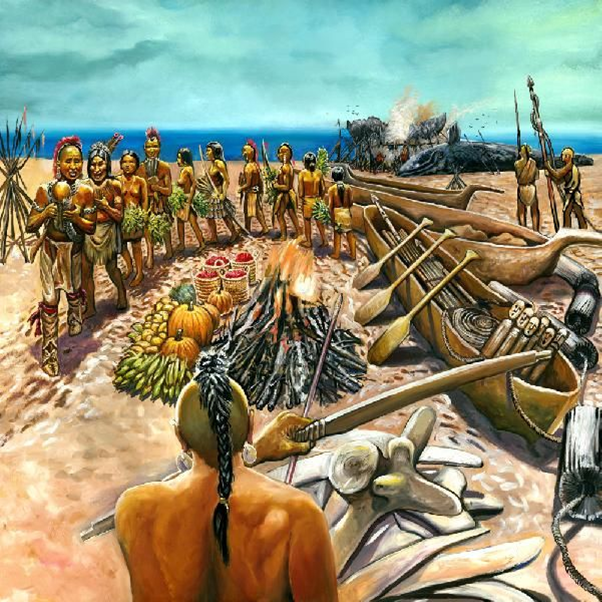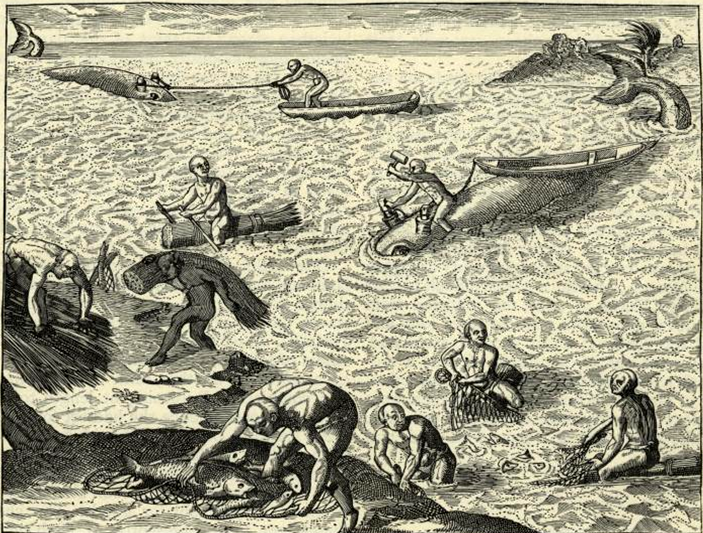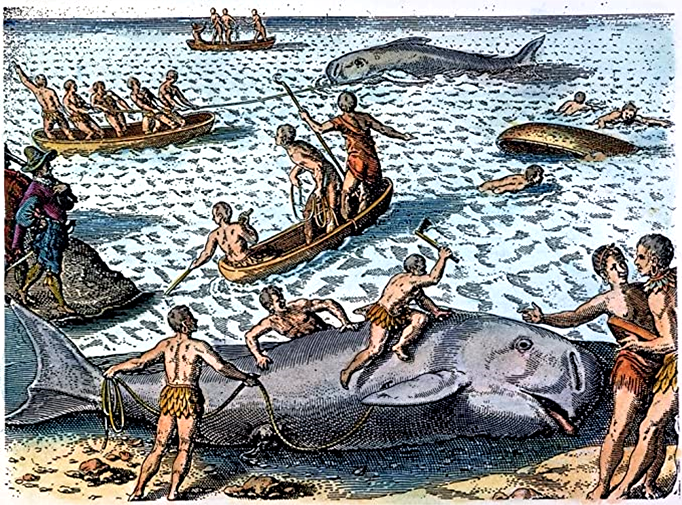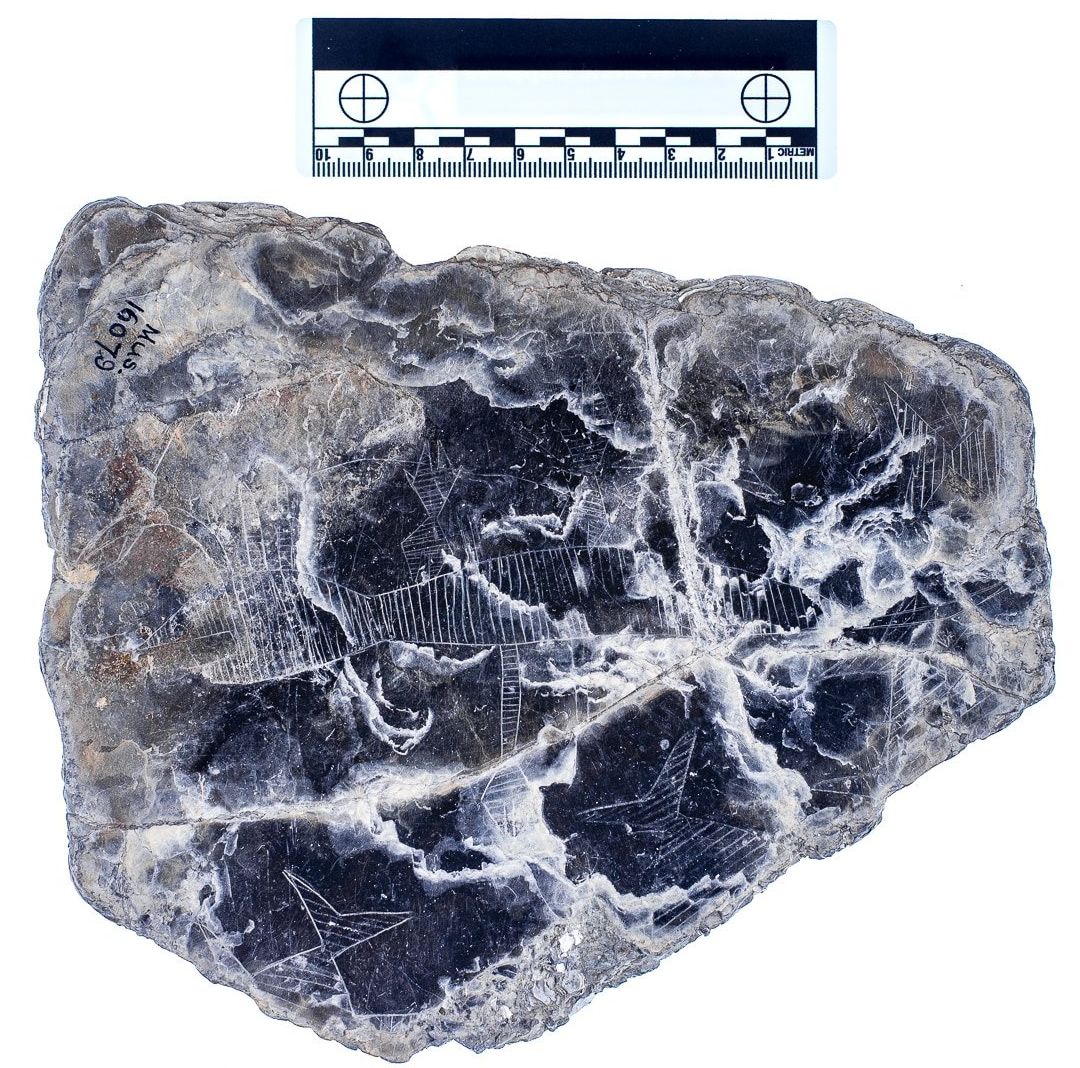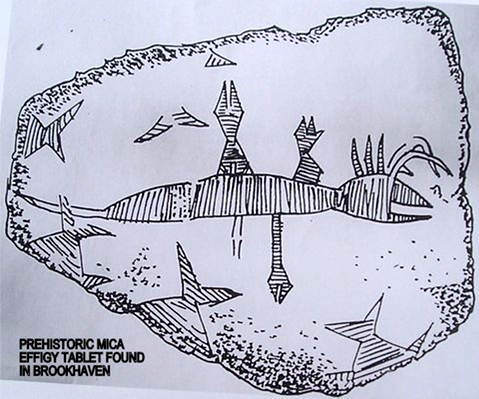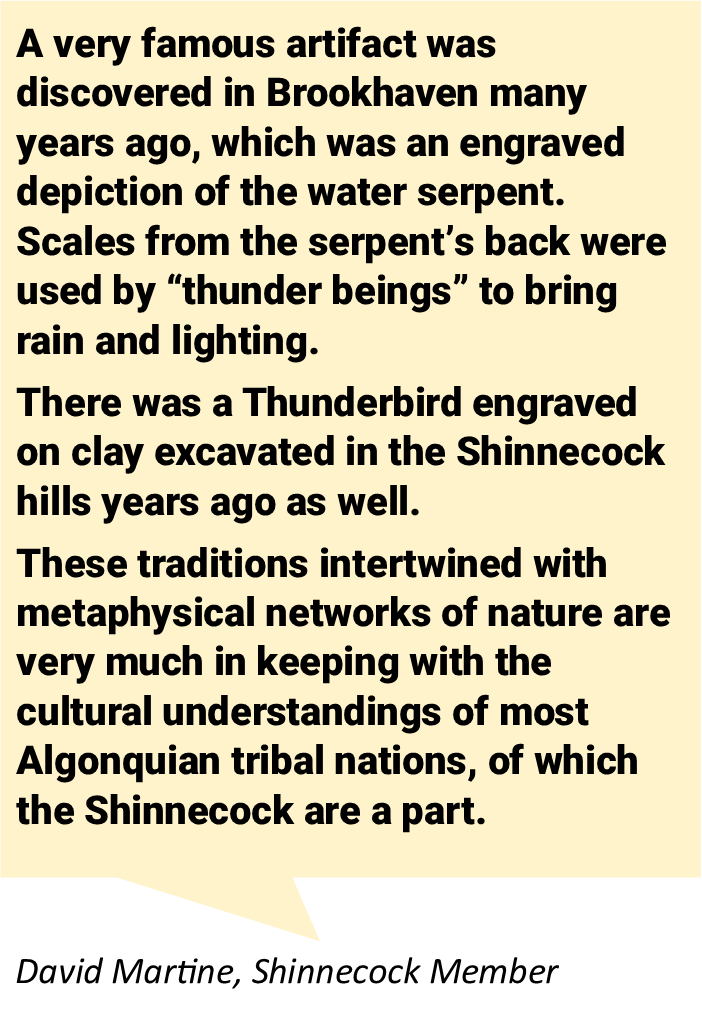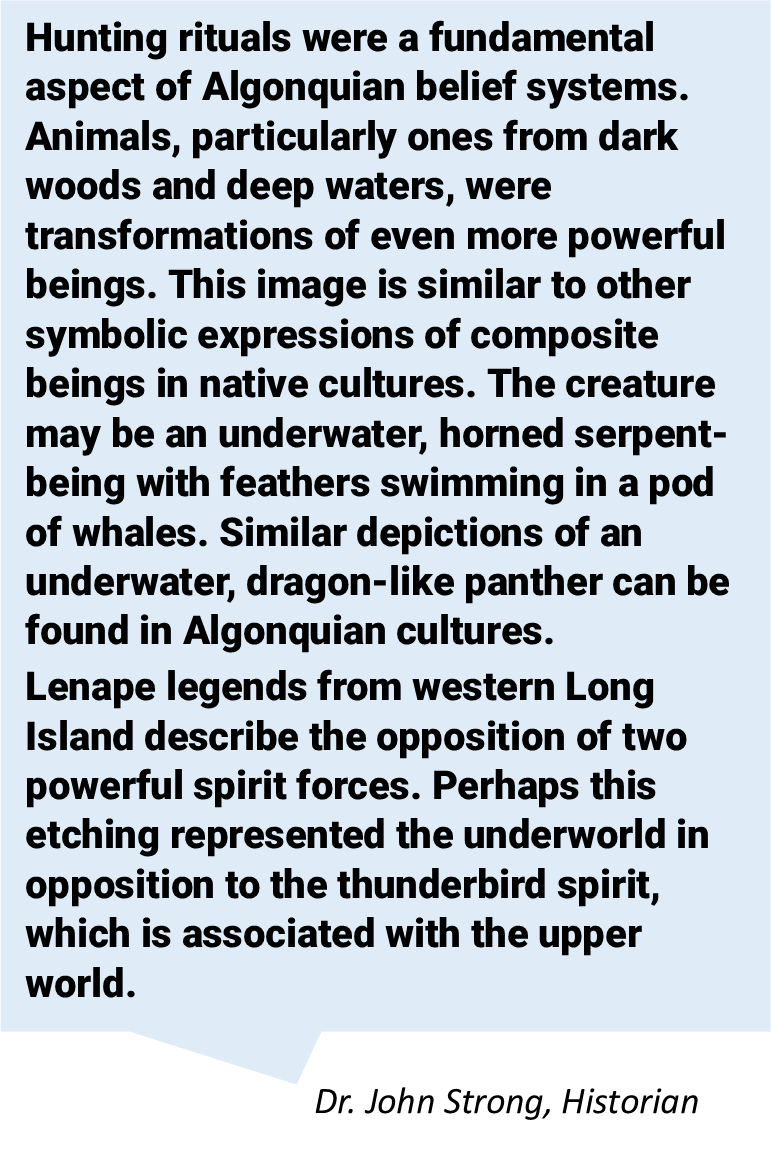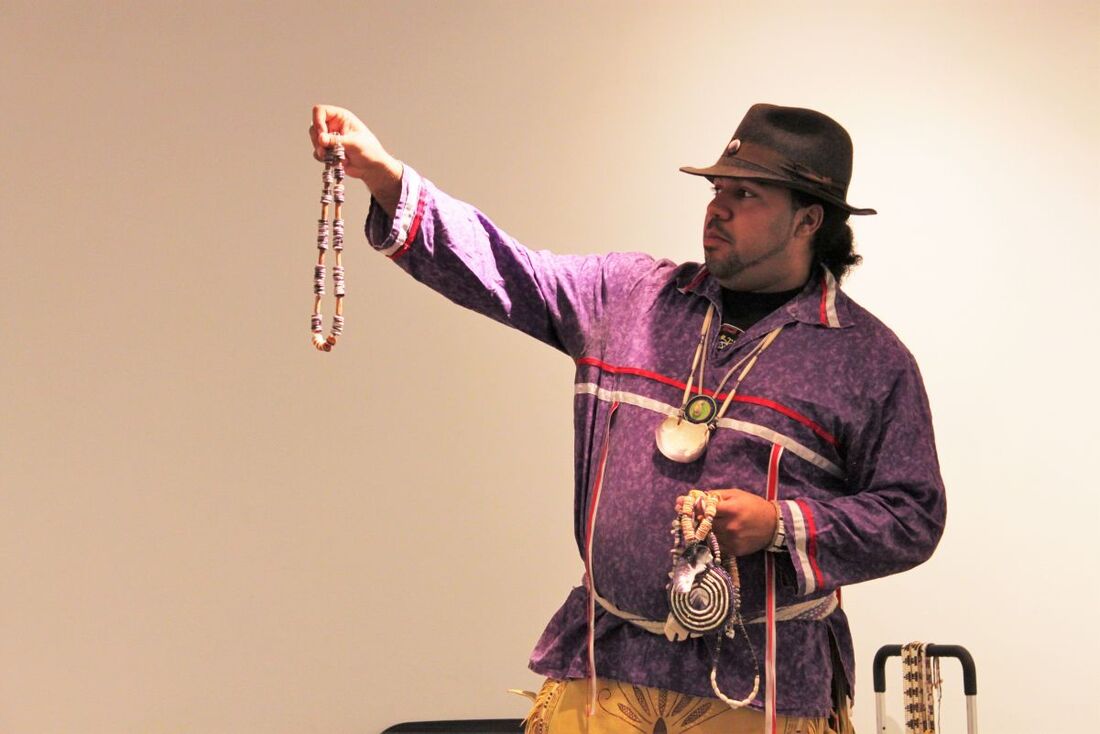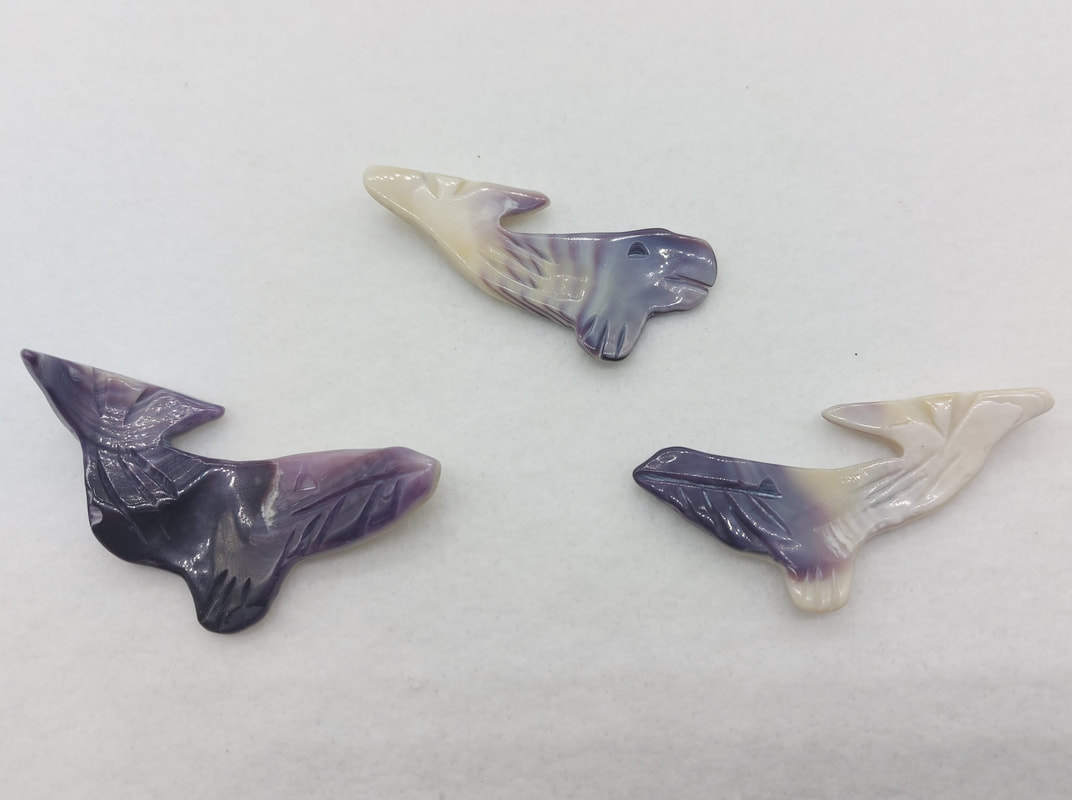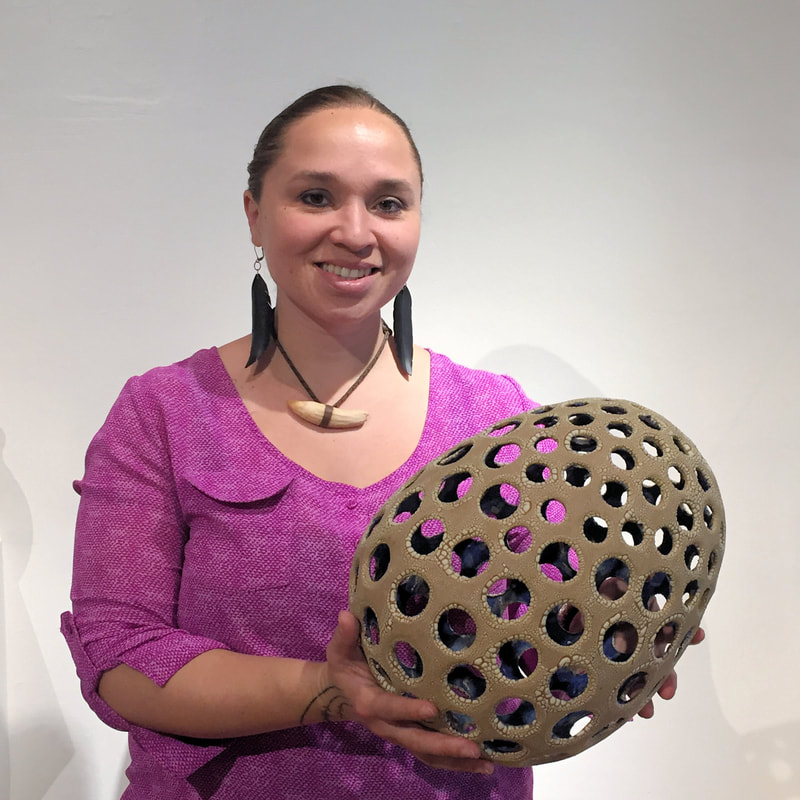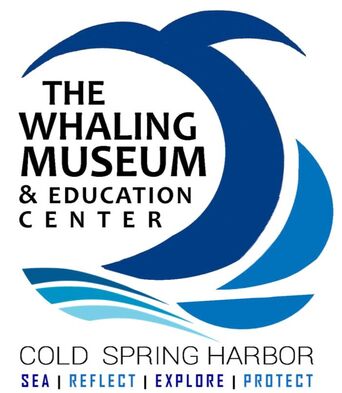Potedaup: The Whale
To the Shinnecock, the whale is a spiritually powerful being in a sacred environment.
|
"Traditionally, the whales had a deep connection in the spiritual sense to the Shinnecock people, similar to the almost psychic connection to the whale’s spirit as was depicted in the movie Whale Rider.
Whales were identified as pottap or potedaup in the traditional Algonquian language. The whale was considered to be the “gift of Moshup,” a giant and a symbol of the Creator. His wife, according to the Mohegan (who are related to the Shinnecock/Montauk), was the head of the “little people,” who lived in the forest and could be both beneficent as well as mischievous if not respected. Whale ‘Thanksgiving’ Ceremonies It should be remembered that originally the taking of a whale for the ancient Shinnecock and Montauk was a community affair in the ancient paradigm. A ceremony of thanksgiving accompanied the activity, the tails and fins were especially prized. The ceremony was conducted by the medicine man or “powawus” from which the word “powwow” was derived." - David Martine, Shinnecock Member
|
"Here, I depicted the great mashues or dug-out canoes made of tulip-poplar, cedar, or oak used for the Powdawe, or whale hunt. The dance is a ‘stomp’ or line dance, where leader sings with the gourd rattle accompaniment."
|
Subsistence Whalers
How and why did the Shinnecock hunt whales?
- Before European contact, it is likely smaller whales or calves were hunted or corralled in dugout canoes. Beached or drift whales were also used for food.
- When Basque fisherman whaled off the Atlantic coast of the US in the 1500s, it is possible that Indians gained whaling techniques from them.
There are two intriguing engravings by the artist Theodor De Bry circa 1590 which depict Atlantic-coast Indians hunting whales:
A description of the Eastern Abenaki in northern New England in 1605, whose whaling process was likely similar to the Shinnecock:
“They would go out in a multitude of their boats with a bone harpoon fastened to a rope made strong with the bark of a tree. They surround the whale with their boats and when he rises out of the water they shoot him with their bone tipped arrows. After a song of joy, the whale meat is carved up and they divide the spoils and give every man a share, which they hang up in their houses for preservation.” - Secondhand description by James Rosier
William Wood, a seventeenth-century observer, marveled at the seamanship of Algonquins in Massachusetts in 1634:
“In their cockling fly-boats [canoes], where an Englishman can scarce sit without fear of tottering, they will venture to sea, where an English shallop [boat] dare not bear a knot of sail; scudding over the overgrown waves as fast as a winde-driven ship, being driven by their paddles.”
“They would go out in a multitude of their boats with a bone harpoon fastened to a rope made strong with the bark of a tree. They surround the whale with their boats and when he rises out of the water they shoot him with their bone tipped arrows. After a song of joy, the whale meat is carved up and they divide the spoils and give every man a share, which they hang up in their houses for preservation.” - Secondhand description by James Rosier
William Wood, a seventeenth-century observer, marveled at the seamanship of Algonquins in Massachusetts in 1634:
“In their cockling fly-boats [canoes], where an Englishman can scarce sit without fear of tottering, they will venture to sea, where an English shallop [boat] dare not bear a knot of sail; scudding over the overgrown waves as fast as a winde-driven ship, being driven by their paddles.”
- Dr. John Strong, Historian
A Spirited Rock
This 7-inch carved tablet was found two feet below the ground by a farmer in Brookhaven in 1840. The carving is estimated to have dated from the Middle Woodland Period (200 BC -AD 300).
What do you see in this image?
What do you see in this image?
See more information about this mica tablet.
Whales in Native Art Today
Tecumseh CeaserTecumseh Ceaser is an artist and cultural consultant of the Matinecock Turkey clan, Shinnecock, Unkechaug, and Wampanoag, descent. Born and raised in Queens, NY, the homeland of the Matinecock, he works in the traditional medium and practice of quahog shell (wampum) carving.
"Whales are very significant for the indigenous people of Long Island.
These whales were inspired by a ceremony I assisted in 2019 to honor three whales who had been beached. This ceremony was really special because it brought together the Shinnecock community in a ceremony that hadn't happened in over 100 years. Whales have played a big role in Northeast native history, culture and lifeways. Traditionally, we used many parts of the whale as food, ceremony, tools, regalia and more." -- Tecumseh Ceaser |
Courtney Leonard
|
Courtney Leonard is a multi-media artist and filmmaker of Shinnecock descent. Her work explores marine biology, human environmental impact, and indigenous ties to water. Her current work embodies the multiple definitions of “breach”, an exploration and documentation of historical ties to water, whale and material sustainability.
"Can a culture sustain itself when it no longer has access to the environment that fashions that culture?
Due to nation to nation agreements with the United States government as well as New York State, topics of sovereignty, imposed law and environmental issues impacting our nation, The Shinnecock Nation of what is now referred to as Long Island, NY, has and continues to struggle with access to the material of the whales as they wash ashore having been often struck by the shipping boats that pass our waters. Through the work of BREACH and by having the opportunity to travel to and connect with other indigenous water communities throughout the world, I have been able to research and learn about our common struggles and unique narratives as they pertain to 'access' and 'understanding'. " -- Courtney Leonard |
© COURTNEY M. LEONARD
|

